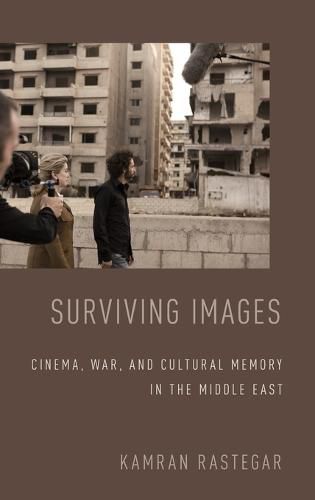Readings Newsletter
Become a Readings Member to make your shopping experience even easier.
Sign in or sign up for free!
You’re not far away from qualifying for FREE standard shipping within Australia
You’ve qualified for FREE standard shipping within Australia
The cart is loading…






Surviving Images explores the prominent role of cinema in the development of cultural memory around war and conflict in colonial and postcolonial contexts. It does so through a study of three historical eras: the colonial period, the national-independence struggle, and the postcolonial. Beginning with a study of British colonial cinema on the Sudan, then exploring anti-colonial cinema in Algeria, Egypt and Tunisia, followed by case studies of films emerging from postcolonial contexts in Palestine, Iran, Lebanon, and Israel, this work aims to fill a gap in the critical literature on both Middle Eastern cinemas, and to contribute more broadly to scholarship on social trauma and cultural memory in colonial and postcolonial contexts. This work treats the concept of trauma critically, however, and posits that social trauma must be understood as a framework for producing social and political meaning out of these historical events. Social trauma thus sets out a productive process of historical interpretation, and cultural texts such as cinematic works both illuminate and contribute to this process. Through these discussions, Surviving Images illustrates cinema’s productive role in contributing to the changing dynamics of cultural memory of war and social conflict in the modern world.
$9.00 standard shipping within Australia
FREE standard shipping within Australia for orders over $100.00
Express & International shipping calculated at checkout
Surviving Images explores the prominent role of cinema in the development of cultural memory around war and conflict in colonial and postcolonial contexts. It does so through a study of three historical eras: the colonial period, the national-independence struggle, and the postcolonial. Beginning with a study of British colonial cinema on the Sudan, then exploring anti-colonial cinema in Algeria, Egypt and Tunisia, followed by case studies of films emerging from postcolonial contexts in Palestine, Iran, Lebanon, and Israel, this work aims to fill a gap in the critical literature on both Middle Eastern cinemas, and to contribute more broadly to scholarship on social trauma and cultural memory in colonial and postcolonial contexts. This work treats the concept of trauma critically, however, and posits that social trauma must be understood as a framework for producing social and political meaning out of these historical events. Social trauma thus sets out a productive process of historical interpretation, and cultural texts such as cinematic works both illuminate and contribute to this process. Through these discussions, Surviving Images illustrates cinema’s productive role in contributing to the changing dynamics of cultural memory of war and social conflict in the modern world.